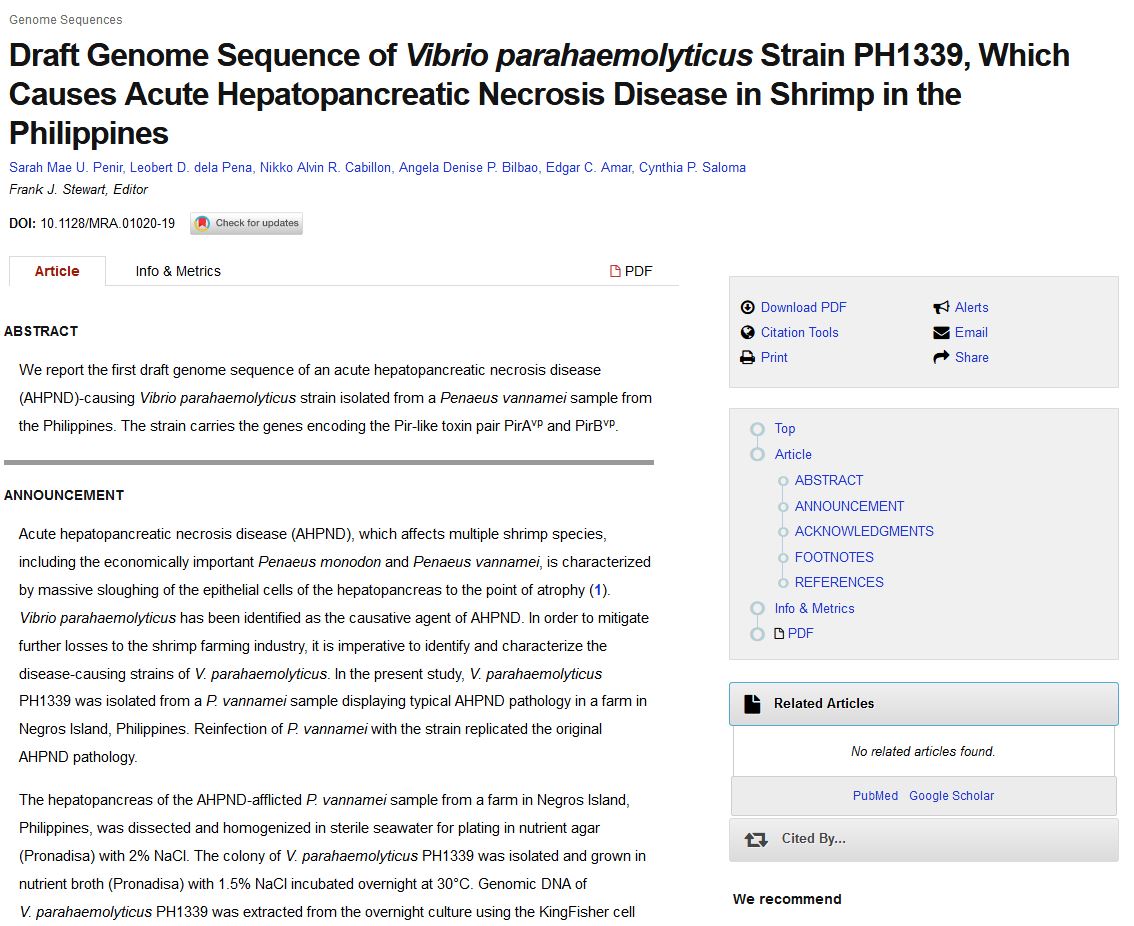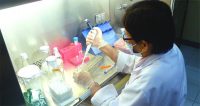The emergence of multidrug-resistant bacterial strains in diverse settings has been reported globally. In the Philippine shrimp aquaculture industry, antibiotics are used for the treatment of bacterial diseases during the production cycle. We report the draft genome of Vibrio parahaemolyticus PH698, a multidrug-resistant strain isolated from a Philippine shrimp farm.

Draft Genome Sequence of Vibrio parahaemolyticus Strain PH1339, Which Causes Acute Hepatopancreatic Necrosis Disease in Shrimp in the Philippines
Acute hepatopancreatic necrosis disease (AHPND), which affects multiple shrimp species, including the economically important Penaeus monodon and Penaeus vannamei, is characterized by massive sloughing of the epithelial cells of the hepatopancreas to the point of atrophy (1).

DSCF and SEAFDEC Collaboration on Aquatic Pathogens
Last May 13 to 15, 2013, Dr. Cynthia Saloma and research assistants Gabriel and David went to the South East Asian Fisheries Development Center (SEAFDEC) in Iloilo for DSCF’s collaboration with SEAFDEC on projects involving aquaculture pathogens. On this trip, DNA from shrimps infected with the White Spot Syndrome Virus (WSSV) and Vibrio harveyi pure cultures were extracted and brought back to the DSCF laboratory for sequencing.

